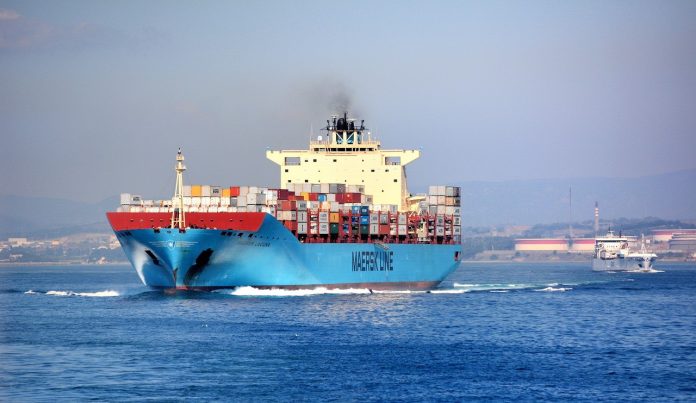Dansk- og engelsksprogede tidsskriftartikler, som analyserer globaliseringsbegrebet og tager pulsen på den verdenskapitalistiske uorden.
Forord
Op gennem 1990erne er begrebet “globalisering” blevet den almindelig måde at beskrive verdensøkonomiens udvikling på. Her har vi samlet et lille udvalg af dansk- og engelsksprogede tidsskriftartikler, som gennem den seneste halve snes år har analyserer globaliseringsbegrebet og taget pulsen på den verdenskapitalistiske uorden. De fleste er skrevet af venstrefløjsøkonomer ( eller har afsæt i deres analyser) og er kritiske overfor begrebet ‘globalisering’ og dets ideologiske funktion som murbrækker for markedskræfternes frie hærgen. Artiklerne rækker fra en vigtig artikel i det engelske tidsskrift New Left Review i 1988 til en større løbende debat i det amerikanske tidsskrift Monthly Review.
Bjarne A. Frandsen
Maj 2001, revideret marts 2009
For nyere analyser og debat, se Emneoversigten: Økonomi/Economy
På dansk
Gaia
Michael Schølardt: Et bekvemt begreb afsløres (nr.19, vinter 1997, s.34-37). P.t. ikke online.
“Fra direktionskontorer og finansministerier til venstrefløjen bliver ordet globalisering brugt som den altomfattende opfattelse af verdenen. Konklusionerne der drages er selvfølgelig forskellige. Hirst har gennem flere år analyseret det grundlag begrebet bygger på, og konkluderer i sin seneste bog, at globaliseringen er en myte.”
James Petras: Informationssamfund, globalisering og andre imperialistiske fabler (nr.27, efterår 1999, s.9-17). P.t. ikke online.
“Den nordamerikanske sociolog, James Petras, går her kraftigt imod imperialistiske fabler om ’globalisering’ og ’informationssamfund’ der skulle betegne en afgørende ny fase i kapitalismen/imperialismen.”
Torkil Lauesen: Kapitalismen og modstanden: To perspektiver – to strategier (nr.27, efterår 1999, s.36-47). P.t. ikke online.
“Der synes at udvikle sig forskellige opfattelser på venstrefløjen af hvordan kapitalismen ser ud og udvikler sig her ved årtusindskiftet. Det er ikke blot udtryk for forskellige perspektiver. De forskellige fortolkninger af verden er udtryk for – og fører til – forskellige strategier for radikal forandring.”
Grus
Henrik Plaschke: Globaliseringens begrænsninger (nr.52, 1997, s.107-112; online på Internet Archive). Anmelderartikel af af Paul Hirst & Grahame Thompsons bog: Globalization in Question (1996)
“Det er ikke nogen given sag, at globaliseringsperspektivet udgør et frugtbart udgangspunkt for forståelsen af verdens tilstand. Dels er det problematisk at sammenfatte en lang række af processer, der måske er indbyrdes forbundne og måske relativt adskilte, i én enkelt term, og dels synes der rent faktisk at være ganske solide empiriske argumenter for at forkaste eller i hvert fald gradbøje en række centrale temaer i globaliseringstesen.”
Den Ny Verden
Laurids S. Lauridsen: Et skridt frem og to tilbage: Kapitalens internationalisering eller økonomiens globalisering (nr.3, 1997, s.84-102). Se udvidet udgave på RUCs site/Internet Archive (pdf)
“Globalisering er blevet et modeord i udviklingsdebatten. Som alle tidligere modeord retter den vores opmærksomhed imod nye udviklingstendenser, men tenderer samtidig mod at lægge et røgslør hen over en kompleks virkelighed. I denne artikel hævdes det, at produktionens globalisering er mindre entydig og mindre omfattende, end den fremstilles af globaliseringsteoretikerne.”
Salt
Henrik Plaschke: Den globale kapitalisme eksisterer ikke! (nr.6, 1995, s.28-30).
“Tesen om den globaliserede kapitalisme lider af en række grundlæggende svagheder, der gør den uegnet til at analysere den moderne kapitalismes dynamik.”
Socialistisk Revyay
Ole Andersen: Globalisering – fælde eller fremskridt? (nr.5, juni-juli 1998, s.24-26)
“Globaliserings-spøgelset har været brugt til at skræmme alle, der har været imod, at markedskræfter frit skulle hærge. Ole Andersen påviser i denne artikel, at det meste omkring globalisering bygger på myter.”
Vardøger
Rune Skarstein: Globaliseringens politiske økonomi (nr.24, 1998, s.28-68). Artiklen er ikke online.
“Økonomisk globalisering er både en myte og en realitet. Det er en myte at kapitalismens globalisering er et nytt fenomen som har ført til oppløsning av de nasjonale økonomiene og deres ‘grenser’ mot verdensøkonomien … Derimot er det en realitet at sammenflettingen av de nasjonale økonomiene har fået større fart og helt nye kvalitative trekk i kjølvandet av deregulerings- og liberaliseringsbølgen.”
In English
Fight Racism! Fight Imperialism!
David Yaffe: Globalisation: A redivision of the world by imperialism (No.131, June-July 1996; online at Davidyaffe.org.uk)
“Globalisation is the latest fashionable term used to describe the all pervasive forces of a rampant capitalism … In fact the degree of internationalisation of capital is only now approaching those levels existing before 1914. And far from being new, we are seeing a return to those unstable features of capitalism which characterised imperialism before the first world war.”
David Yaffe: The politics and economics of globalization (No.137, 1997; online at Davidyaffe.org.uk)
“Globalisation is an ideological term. It encompasses the frenetic international expansion of capital – an expansion which has had devastating consequences for the majority of humanity. The debate around it, however, has tended to obscure rather than clarify our understanding of the forces at work.”
International Socialism
John Rees: Imperialism: Globalisation, the state and war (Issue 93, Winter 2001, p.3-30)
“The article is a concise account of the main outlines of the capitalist system and the nature of inter-state rivalry at the beginning of the 21st century.”
Chris Harman: Globalisation: A critique of a new orthodoxy (Issue 73, Winter 1996, p.3-33)
“Chris Harman examines the claim that the world market is now such a powerful force that neither states nor organised labour can withstand the pressures. He debunks the assertions of globalisation theorists and gives a careful account of the inter-relationship between multinational capital, the state and the modern working class.”
International Socialist Review
Lee Sustar: Globalization: Myth and realities (Issue 12, June-July 2000, p.19-23)
“Over the past several years, the term ‘globalization’ has become a common way for politicians and the media to refer to the dominant trends in the world economy. Economic globalization is, it would seem, all pervasive. But what exactly is globalization? In fact, the meaning of ‘globalization’ depends almost entirely on who is talking about it.”
Paul D’Amato: Imperialism and the state: Why McDonald’s needs McDonnell Douglass (Issue 17, April-May 2001, p.20-26)
“Corporate domination has not replaced the struggle for domination between states. Transnational corporations cannot dispense with the role the state has played for capital in the past – as guarantors of order at home and power abroad.”
Doug Henwood: From miracle to malaise (Issue 17, April-May 2001, p.48-51)
“Doug Henwood is the editor of Left Business Observer, an economic newsletter. He spoke to the ISR’s Anthony Arnove about his new book and the current crisis in the U.S. economy.”
Journal of World-Systems Research
Special Issue on Globalisation (Vol.5, No.2, Summer 1999, 167 p.; online at Internet Archive)
“This special issue of JWSR seeks to explore the history, present reality, and future implications of globalization … the authors emphasize economic and political over cultural globalization.”
Monthly Review
Capitalism, globalization, and epochal shifts: An exchange by A. Sivanandan and Ellen Meiksins Wood (Vol.48, No.9, February 1997, p.19-31)
William S. Tabb: Globalization is An issue, the power of capital is The issue (Vol.49, No.2, June 1997, p.20-30)
“The discussion of globalization is best undertaken as a two step process. The first need is to critique the strong version of globalization which has disempowered much of the left. That is the task of this essay. The second step is to look more carefully at what is new in the present conjuncture.”
Ellen Meiksins Wood: Labor, the state, and class struggle (Vol.49, No.3, July-August 1997) “I want to consider, in very broad terms, the ways in which today’s ‘global’ and ‘flexible’ capitalism affects the prospects of working class politics, the kind of politics that takes class struggle beyond the workplace to the centers of class and state power.”
Paul M. Sweezy: More (or less) on globalization (Vol.49, No.4, September 1997, p.1-4)
“Globalization is not a condition or a phenomenon: it is a process that has been going on for a long time, in fact ever since capitalism came into the world … What is relevant and important, is to understand that capitalism is in its innermost essence an expanding system both internally and externally.”
Richard B. Du Boff and Edward S. Herman: A critique of Tabb on globalization (Vol.49, No.6, November 1997, p.27-35)
“[Tabb] has sought to downgrade globalization as mainly an ‘ideological mystification’, an artifact of ‘postmodernism’, and ‘based on a myth’ that denies any role to politics. We believe that this is a seriously mistaken analysis, and that it clashes with the historical momentum of capitalism.”
William K. Tabb: Globalization: Comments on Du Boff and Herman (Vol.49, No.6, November 1997, p.35-39)
“They in fact attribute a number views to me which I do not hold. They propose “alternatives” and I agree with a number of these.”
Ellen Meiksins Wood: A note on Du Boff and Herman (Vol.49, No.6, November 1997, p.39-43)
“Their main disagreement with me has to do with the state.”
Frances Fox Piven and Richard A. Cloward: Eras of power (Vol.49, No.8, January 1998, p.11-23) + Reply from Ellen Meiksins Wood + Rejoinder from Piven/Clovard (p.24-46)
“During the past few years a strong challenge has been mounted in the pages of Monthly Review to the argument – prevalent on the left as well as the right – that globalization and technological change have combined to bring us into a new era.”
Ellen Meiksins Wood: Capitalist change and generational shifts (Vol.50, No.5, October 1998, p.1-10)
“Why are so many left intellectuals determined to talk about globalization as an ‘epoch’ rather than as a process? Why do they insist on treating it as a historic rupture rather than as a process of change rooted in the systemic logic of capitalism from the beginning?”
Leo Panitch: ‘The state in a changing world’: Social-democratizing global capitalism? (Vol.50, No.5, October 1998, p.11-22)
Ellen Meiksins Wood: Unhappy families: Global capitalism in a world of nation-states (Vol.51, No.3, July-August 1999, p.2-12)
“In what follows, I want to explore, in general terms, some of the connections between capitalism and the nation-state and to sketch out their development from the beginning until now.”
The ’New Economy’ and the speculative bubble: An interview with Doug Henwood (Vol.52, No.11, April 2001)
“The whole New Economy discourse of the last three or four years – which may be fading now that the dot-com stocks have collapsed and the economy is looking a little recessionish – holds that computer and communications technology have so turned the world upside down that all the old rules don’t apply.”
New Left Review
David M. Gordon: The global economy: New edifice or crumling foundations? (Issue 168, March-April 1988, p.24-64). Only extracts online.
“I argue in this essay, that widespread perceptions about the NIDL and the GOP have been significantly distorted and that much of the conventional wisdom prevailing on the left (and elsewhere) about recent changes in the global economy requires substantial revision.”
Andrew Glyn: Imbalances of the global economy (Issue 34, July-August 2005). Only summary online.
“Wide-ranging account of the growing disequilibria within an increasingly integrated global capitalism. Andrew Glyn takes the measure of China’s still gigantic catch-up potential, in comparison to previous Asian NIEs, and assesses the impact of its rise across different sectors of the world economy.”
New Politics
Symposium on Globalization: Hard questions for the Left (Vol.8, No.1, Summer 2000, Whole No.29, p.12-42; online at Internet Archive)
“In the following symposium, New Politics hopes to stimulate discussion of the kind of alternative globalization the emerging movement stands for, and how to get there.”
Review of Radical Political Economics
Andrew Glyn and Bob Sutcliffe: Still underwhelmed: Indicators of globalization and their misinterpretation (Vol.31, No.1, 1999, p.111-132). Only abstract online.
“Globalization is widely misinterpreted. In particular its quantitative extent and novelty are exaggerated. This article aims to put the facts in historical and statistical perspective. It criticises the use of inappropriate statistical measures, conclusions drawn from little data, and the failure to make historical comparisons, or to see counter-globalization tendencies and limits to globalization.”
Socialist Register
Harry Magdoff: Globalization – to what end? (pdf) (1992, p.44-75)
“Contrary to widespread expectations, sources of tension among the leading capitalist powers have increased side by side with their growing interdependence. Nor has the geographic spread of capital reduced the contradictions between the rich and poor nation.”
Andrew Glyn and Bob Sutcliffe: Global, but leaderless? The new capitalist order (pdf) (1992, p.76-95)
“The widespread view that the present degree of globalization is in some way new and unprecedented is, therefore, false. One reason perhaps why this false view has gained credence on the left is that it seems to explain a loss of national economic independence which in turn has contributed to the decline of socialism.”
The Spokesman
A. Sivanandan: Globalism and the left (pdf) (Issue 67, 2000, p.18-30)
“To dismiss globalisation as a right-wing thesis, to traduce it as ‘globaloney’ and saddle it with post-modernism and/or identity politics is not to dismiss capitalist triumphalism, but to evade it – to retreat, in fact, to the safety of the old barricades and throw stones at capitalism like some intellectual intifada.”
Trotskyist International
Lesley Day: Globalization: A new stage of world economy? (No.21, January-June 1997, p.1-6).
“Have recent developments fundamentally changed the relationship between the economy and the nation state? A survey of the debate.”
Workers Liberty
Martin Thomas: Globalisation and its discontents (No.50-51, October 1998, p.25-31)
“In the second part of his consideration of the reality and theories of globalisation, Martin Thomas analyses the changes in the global economy and the practical conclusions for Marxists.”
World Socialist Web Site
Nick Beams: The significance and implications of globalization: A Marxist assessment (January 4, 1998)
“The globalisation of production is not merely an increase in international economic activity. It represents a qualitative change in the structure of the world capitalist economy.”
ZNet
Doug Henwood: What is Globalization, anyway (November 26, 1999)
“One of my problems with this term is that it often serves as a euphemizing and imprecise substitute for imperialism … Not only is the novelty of ‘globalization’ exaggerated, so is its extent.”
































